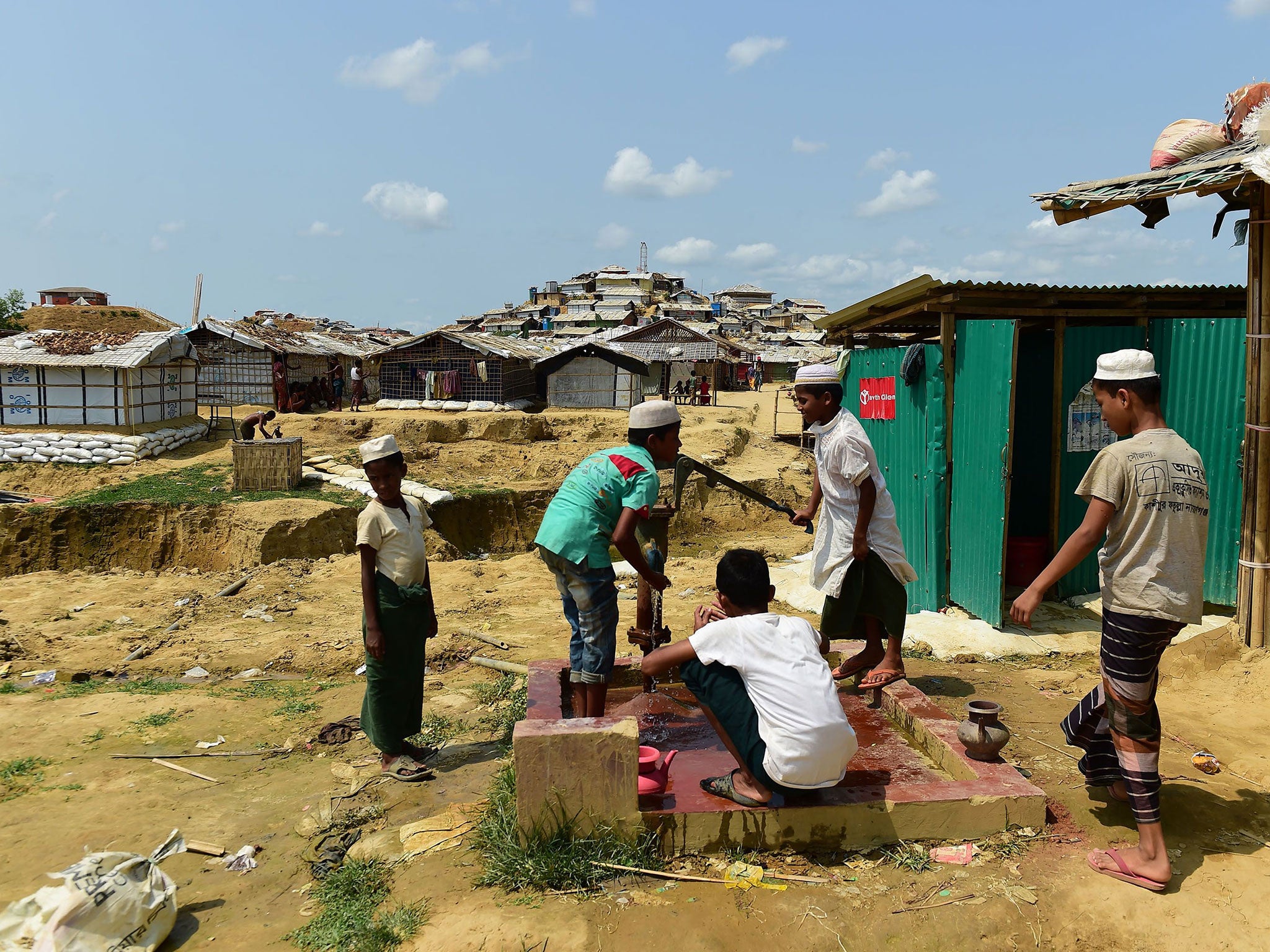Ramadan 2018: 'Bittersweet' celebrations for Rohingya Muslims forced to flee homes in Myanmar
Holy month and monsoon season coincide to create perfect storm of ‘extremely challenging’ conditions for refugees

For many of the hundreds of thousands of Rohingya Muslims who have been forced to flee Myanmar in the past year, Thursday will mark the first time in their lives that they will be able to observe the holy month of Ramadan without fear of retribution.
More than 600,000 of the refugees live in cramped conditions and makeshift shelters in Cox’s Bazar, Bangladesh, where a network of settlements now ranks as by far the biggest refugee camp in the world.
They have fled persecution in Myanmar, which the UN has said appears to amount to ethnic cleansing. But even before the latest wave of violence that began last August, minority Muslims in Rakhine state had been denied the right to practice their religion freely.
Ramadan in the camps of Cox’s Bazar will come with significant challenges. The vast majority of both refugees and aid workers are expected to observe a daily fast – with nowhere to hide from the hot and humid weather conditions of this time of year.
To accommodate the influx of people in Cox’s Bazar, vast swathes of the landscape have been stripped of vegetation and simple bamboo structures with tarpaulin roofs have been erected in their place.
Speaking to the AFP news agency inside the Cox’s Bazar district, one 12-year-old Rohingya said he used to look forward to fasting because it meant resting with friends between chores, sharing in the act of devotion in the shade of trees.
“We cannot fast here like we did back in Burma [Myanmar], because it’s too hot. There are no trees,” said Hashim. “The tarpaulin is hot, and it gets hotter when the sun is beating down. It will be very difficult.”
Caroline Gluck, a senior official based in Cox’s Bazar for the UN’s refugee agency, said Ramadan was poised to be a “very difficult time” for the Rohingya, living in such a congested settlement where they must rely on NGOs and their Bangladeshi hosts for everything.
Access to clean water to rehydrate either side of the fast could be a particular problem, she told The Independent, while many refugees have complained of being unable to afford the special foods and gifts usually associated with the iftar feast, breaking the fast in the evening.
It will be extremely challenging, not least because we are entering the monsoon season, when the heavy rains will hit exactly at the time when iftar starts
“It will be extremely challenging,” she said, “not least because we are entering the monsoon season, when the heavy rains will hit exactly at the time when iftar starts.”
Ms Gluck said the UN High Commissioner for Refugees and other agencies have been trying to prepare the Cox’s Bazar camps for the rains, but with the land denuded of its trees and other vegetation, landslides and other devastating events could prove inevitable.
Some rains have already hit the region, and the weather has been bad enough to destroy shelters and blow away their makeshift rooftops. With potentially several devastating cyclones expected to pass over the camp in the weeks to come, aid workers are fearing the worst.
But besides the practical implications of the month ahead, Ms Gluck said Ramadan will also be a difficult time for those, like Hashim, who remember a better time at home in Myanmar – even with its evening curfews and limitations on prayer.

“The Rohingya here have been welcomed by their fellow Muslims, but for many it will be a bittersweet Ramadan,” said Ms Gluck.
“People will feel melancholy, because it is also a time when they should be with family, with their community. So many have lost loved ones, even in the last few months.”
The UN has said the number of Rohingya killed in Myanmar’s military operations “may be extremely high”, while at the end of 2017 the charity Doctors Without Borders suggested the death toll was likely to be above 10,000.
Myanmar’s military has denied any wrongdoing, saying it responded proportionately to the threat of Muslim insurgents, and that allegations against its soldiers are investigated internally. The government has consistently denied access for independent journalists and international inspectors to visit the Rakhine region.
Ramadan is also a time for giving in the Muslim calendar, and private donors in Bangladesh have already started handing out alms to those in need, with host families near the border expected to hold dinners to feed those in the camps.
The UN is highlighting the plight of the Rohingya specifically as part of its international #HandInHand fundraising appeal, and calling on donor countries and organisations to give what they can.
Join our commenting forum
Join thought-provoking conversations, follow other Independent readers and see their replies
Comments
Bookmark popover
Removed from bookmarks